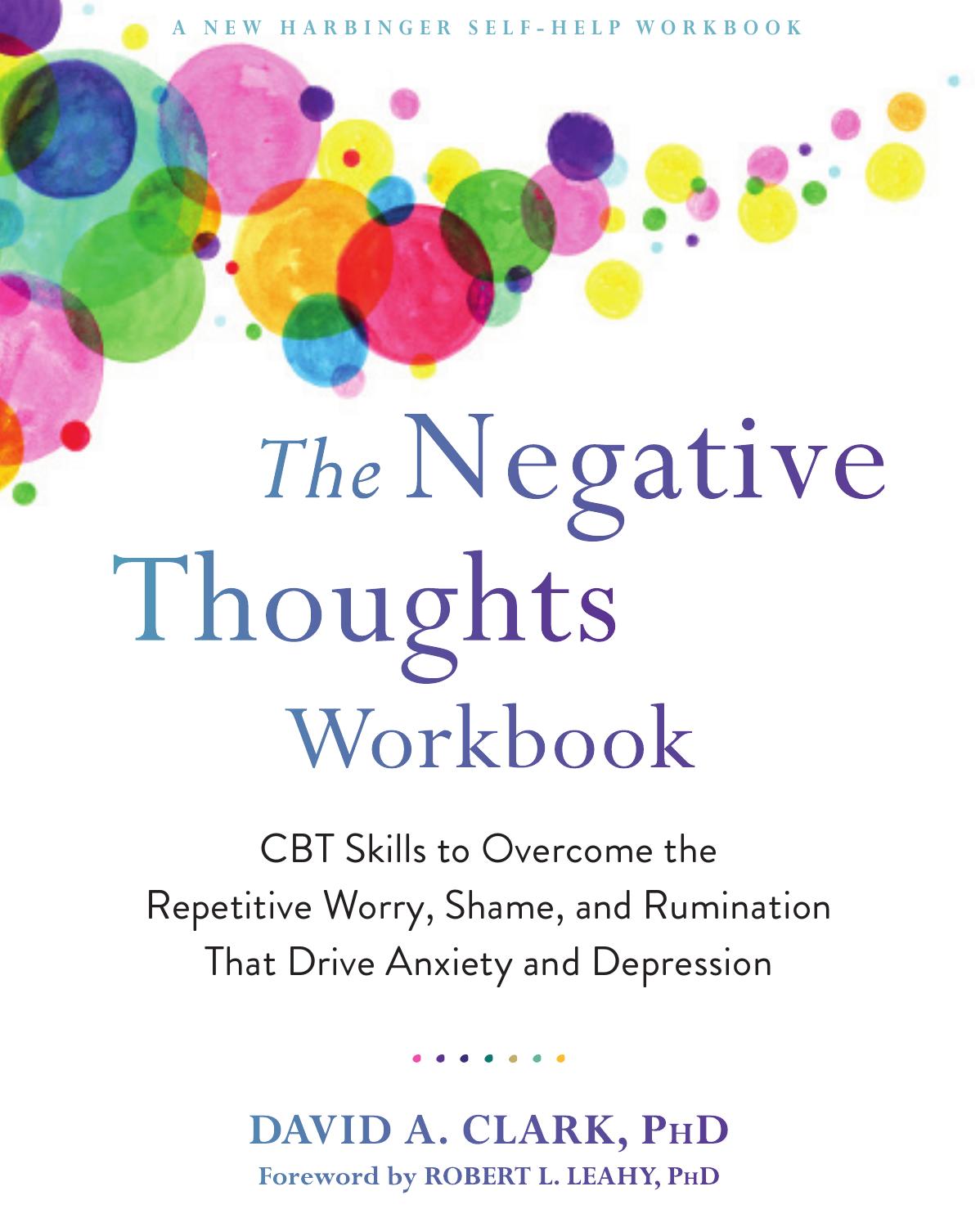The Negative Thoughts Workbook by David A. Clark

Author:David A. Clark
Language: eng
Format: epub, pdf
Publisher: New Harbinger Publications
Published: 2020-09-01T22:56:39+00:00
Regret: A Case of Buyerâs Remorse
There are several characteristics of decision making that increase the chance youâll experience intense regret over your choice, a type of buyerâs remorse (the sinking feeling that you made a mistake after a purchase). The more factors present, the more likely youâll experience the repetitive regretful thinking associated with depression, guilt, anxiety, and other types of personal distress.
Negative outcome. Persistent regretful thinking only occurs if a decision causes an undesirable outcome that has significant personal value. If a decision causes a highly desired outcome, our hearts are filled with rejoicing rather than regret. But weâll feel regret if we think weâve made a negative judgment about something important to our current life circumstance. Emily only started to feel regret about her marital decision when tension and conflict arose in her marriage. Being caught in a loveless marriage triggered repetitive thinking about the causes of her marital unhappiness and to question her past romantic decisions.
Failures of inaction. At first, regret is most intense when weâve had a mistake, but over time, the focus shifts to regret over our failures to act. We tend to focus on âregrettable failuresâ because itâs much harder to understand why we chose not to do something that we now know would be better for us than knowing why we made a wrong decision (Gilovich 1995). Whenever we choose a course of action, it means that alternative choices were ignored or rejected. With repetitive regretful thinking, we focus more on these alternative choices or failures of action. When overwhelmed with feelings of regret, Emily would imagine what her life might have been like if she had continued the relationship with her first serious college boyfriend.
Fanciful thinking. Regret is worse when we believe there is a better alternative to what actually happened (Roese 1997). Because we canât know the future, our imagination can run wild on how much better our life would have been had we made a different decision. Examples include: If only I had prepared more for the interview, I would have gotten my dream job. If I had bought a cheaper preowned car, I wouldnât be so financially strapped. If Iâd been more sociable and outgoing in my twenties, Iâd now be in a loving intimate relationship. We are more likely to have these idealized dreams about what could have been when feeling depressed or experiencing a difficult life circumstance. Unfortunately, this type of thinking is unhealthy and often intensifies negative feelings of shame, guilt, and regret (Watkins 2008).
False hope. Hope is an important belief that helps us deal with difficulties and disappointments. But there is a type of false hope that can be self-defeating. It turns out that regret is more intense when we believe thereâs still time to correct a bad decision. This has been called âthe principle that opportunity breeds regretâ (Roese and Summerville 2005, 1274). Itâs a type of false hope because it doesnât help us cope with our difficulties. This notion that âperceived opportunity breeds regretâ is one reason educational decisions are the most common cause of regret.
Download
The Negative Thoughts Workbook by David A. Clark.pdf
This site does not store any files on its server. We only index and link to content provided by other sites. Please contact the content providers to delete copyright contents if any and email us, we'll remove relevant links or contents immediately.
Big Magic: Creative Living Beyond Fear by Elizabeth Gilbert(4727)
On Writing A Memoir of the Craft by Stephen King(4216)
Paper Towns by Green John(4171)
The Doodle Revolution by Sunni Brown(4045)
Hyperfocus by Chris Bailey(3272)
Evolve Your Brain by Joe Dispenza(3051)
Unlabel: Selling You Without Selling Out by Marc Ecko(2984)
The Red Files by Lee Winter(2917)
The Power of Mindful Learning by Ellen J. Langer(2711)
Draw Your Day by Samantha Dion Baker(2708)
The Art of Dramatic Writing: Its Basis in the Creative Interpretation of Human Motives by Egri Lajos(2414)
The War Of Art by Steven Pressfield(2402)
How to be More Interesting by Edward De Bono(2357)
Applied Empathy by Michael Ventura(2330)
The 46 Rules of Genius: An Innovator's Guide to Creativity (Voices That Matter) by Marty Neumeier(2313)
Why I Am Not a Feminist by Jessa Crispin(2240)
How to Stop Worrying and Start Living by Dale Carnegie(2219)
You Are Not So Smart by David McRaney(2180)
Keep Going by Austin Kleon(2166)
